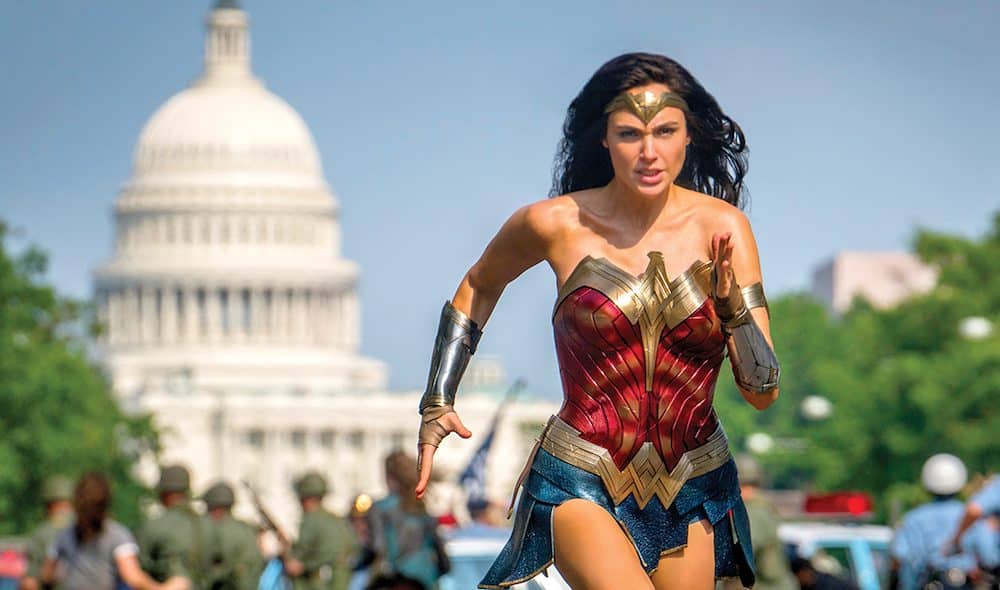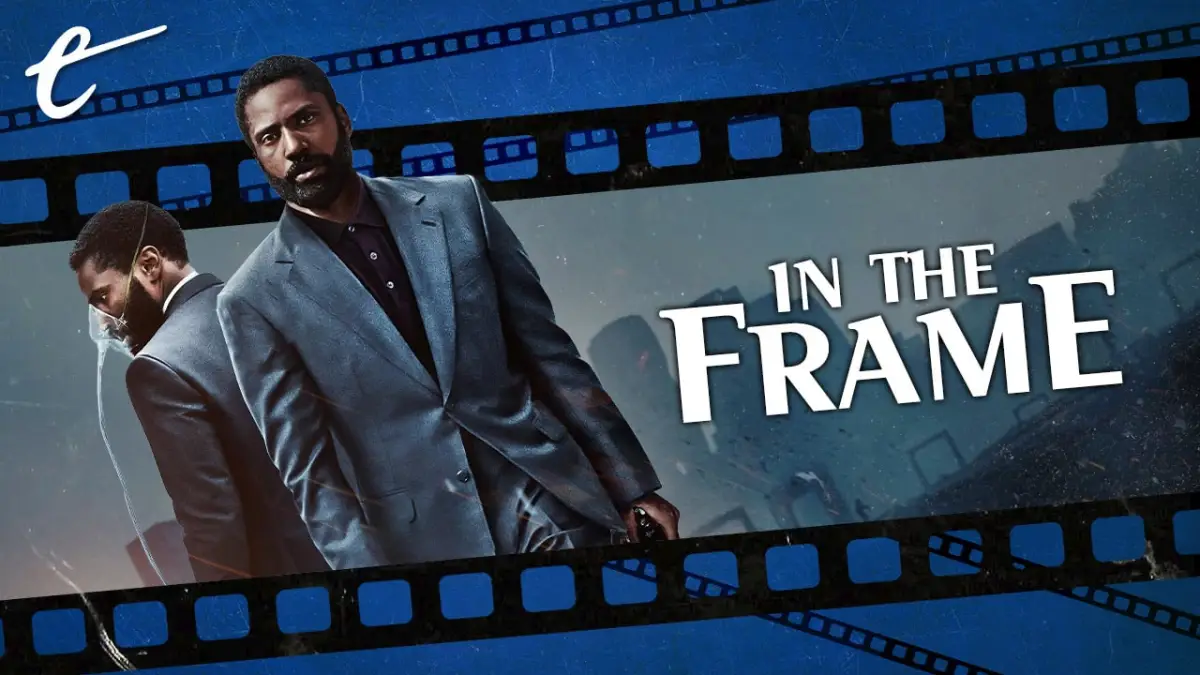Last week, Warner Bros. announced that its entire 2021 slate would be going directly to streaming on HBO Max. It was, in just about every sense, a game changer. So the internet did what the internet does in this situation: It turned this into an excuse to dump on Christopher Nolan.
Of course, the particulars of the Warner Bros. decision are worth unpacking in full. However, it is interesting to watch the way the internet seems to have turned on Nolan. By all accounts, Nolan is a successful director. His films as director have grossed almost $5B worldwide and are universally highly rated by critics. He has been nominated for Academy Awards as a screenwriter and director, and his films tend to be among the highest-grossing of the Best Picture nominees when nominated.
However, there is a notable antagonism towards Nolan that has been simmering for quite some time. It bubbled to the surface with the vocal reaction against The Dark Knight Rises, with conservative critics railing against it as an attack on Mitt Romney’s contemporaneous presidential campaign while liberal voices complained that the film attempted to villainize the “Occupy” movement. In truth, The Dark Knight Rises positioned its hero as a caped social crusader.
Much of the criticism of Nolan tends to be broadly drawn and ill-informed, arguably revealing more of what critics project onto Nolan than the man himself. Nolan is often critiqued as reactionary, with Jonathon Sturgeon describing him as “the Last Tory.” However, what little we know of Nolan’s political beliefs suggest just the opposite. He donated $2,500 to Barack Obama’s election campaign and has complained about “an era that over-prizes individuality at the expense of community.”

This trend continues through the present. In an interview with Hugh Jackman, Anne Hathaway shared a somewhat generic talk show anecdote about what it was like to work on a Christopher Nolan film, discussing how the director discouraged the cast from lounging in chairs as a way of increasing efficiency and decreasing waste. The internet proceeded to accuse Nolan of ableism, of banning chairs from sets, when a quick image search would demonstrate these accusations were baseless.
Observing this criticism of Nolan over an extended period, it often seems like critics are mostly working to justify their preexisting and predetermined attitude towards the director. This is perhaps most obvious in the controversy around Tenet and the global pandemic, where Nolan seems to have become a figure blamed for the frankly disastrous management of the pandemic by the government of the United States that left hundreds of thousands dead.
At the start of the pandemic, Nolan wrote an op-ed in The Washington Post, appealing for state and studio support for “businesses such as movies theaters” that had been forced to close. While in keeping with Nolan’s stated support for community action, this was not a radical suggestion in the pandemic. Other countries have put robust social security nets in place for businesses forced to close to protect public health, often covering wages for those workers while furloughed.
The United States did not do this. Aid came slowly. There was no attempt to inform people of what little aid was available to them. At a federal and local level, many authorities refused to order lockdowns or shunted responsibility lower down the food chain. The world watched in horror. As other countries left lockdown in the summer, the crisis in the United States seemed to deepen. In the midst of this crisis, workers had to go to low-paid jobs to get money to pay rent and to eat.

Then Tenet was released. Tenet was not the first new movie to play in cinemas since the pandemic; it was beaten by movies like The Wretched. It was, however, the first major release and a testing of the waters. It was designed to see if cinemas could support new releases. The results were not ideal. In the United States, Tenet floundered. However, it performed well overseas, grossing more internationally than pre-pandemic releases like Bad Boys for Life or Sonic the Hedgehog.
Again, the narrative aligned against Nolan. The sentiment was best articulated by Seth Rogen, who joked Nolan was “trying to kill his greatest fans”. This ignores the fact that, with companies like AMC and Regal on the verge of bankruptcy and no state support in sight, cinemas desperately needed new content to keep employing thousands of staff. This attempt to resuscitate cinemas did not work — with more dramatic writers claiming Tenet “killed” cinemas.
Of course, this analysis misses several key factors. Most obviously, business outside the United States is good. This will be the first year that the highest-grossing movie will not be American. In particular, the Southeast Asian box office has been booming. English-language cinemas in safer markets needed content once it was safe to reopen, and Tenet provided that. It was a gamble, but it was a gamble that companies like IMAX were eager to take — because there was no alternative for a global “industry actually [facing] collapse.”
There is a strand of this criticism that implies the only way to see Tenet was in a cinema, and audiences faced a choice between going to a cinema where it was not safe or never seeing the movie — playing off the caricature of Nolan as a cinematic snob (which, again, contrasts with the reality of a man with a stated fondness for movies like MacGruber). In reality, audiences could wait a few months for the home media release, minimizing the risk of piracy to overseas box office. After all, rural and international audiences wait months to see the Oscar contenders every year.

More immediately, there was always going to be a cinematic release to test the waters — most likely towards the end of the third financial quarter. Nolan has clarified that mid-August was the latest date that Warner Bros. offered, and he did not push for an earlier one. (This is why it coincided with Disney’s Mulan experiment). However, one of the interesting features of this year’s slate was that many of the blockbusters were directed by women or people of color: Niki Caro’s Mulan, Cate Shortland’s Black Widow, Nia DaCosta’s Candyman, Patty Jenkins’ Wonder Woman 1984, Chloé Zhao’s The Eternals, John M. Chu’s In the Heights.
Had the studios pushed one of those movies out as a cinematic stalking horse, they would have been rightly criticized. History demonstrates that female directors and directors of color do not get the second chances afforded white male directors. Even outside of that reality, Nolan is arguably the only working director who could have taken that chance. It seems highly unlikely that his career will be negatively affected by Tenet’s struggles at the box office.
This gets at the nub of the issue with Nolan, the way in which he is unique. It’s notable that Nolan is far from the only director to voice concerns about Warner Bros. sending its movies direct to streaming. Patty Jenkins has stated that she did not want Wonder Woman 1984 to premiere on video on demand. John M. Chu apparently had to be “soothed” by Toby Emmerich when he heard the news. Legendary Entertainment is considering suing Warner Bros. People are calling it “Former Bros.”
However, it is Nolan who garners the backlash for this, with Slate senior editor Sam Adams wryly noting that the internet made “the discourse about how annoying Christopher Nolan is” and Forbes critic Scott Mendelson sarcastically joking, “Good to see folks villainizing Chris Nolan against the poor, downtrodden underdogs at AT&T.” This gets an interesting bit of subtext that informs a lot of the narrative around Nolan and perhaps why he has become a figure of internet vitriol.

Quite frankly, there is nobody working at the level of Christopher Nolan within the modern studio system, enjoying the freedom and budgets to make the projects that he wants to make without visible compromise. Since The Dark Knight Rises, Nolan’s projects have not been tied to existing intellectual property. However, they retain his core thematic interests and sensibility. Nolan is an auteur, in a way that does not exist at that level and scale any longer.
There was a time when directors could get these sorts of films through the studio system — George Lucas with Star Wars, Steven Spielberg with Raiders of the Lost Ark, Robert Zemeckis with Back to the Future. However, Inception is the only live-action film not tied to an existing intellectual property to gross over $800M at the box office since 2010. Interstellar is one of only two other live-action films not tied to an existing intellectual property to gross over $650M in that same period.
In recent years, we have become justifiably skeptical of auteurs, as accounts of how directors like Alfred Hitchcock or Stanley Kubrick treated their stars have come to light. (It should of course be noted that the worst actors have endured from Nolan is a ban on cell phones at work). Indeed, Mank is a Best Picture contender that is arguably a critique of auteur theory. Cinema is a collaborative medium, and Nolan has his own crew of collaborators — from Wally Pfister to Hans Zimmer.
As if to prove this point, many criticisms of Nolan are rooted in his public persona and auteur status. While conceding Tenet was “undeniably enjoyable,” New York Times critic Jessica Kiang suggests its brittle braininess is only a flaw with the film because Nolan is held to higher standards as “the foremost auteur of the ‘intellectacle.’” Similarly, Nolan’s stated fondness for film and practical effects has been subject to much derision as “snobbery,” despite Nolan’s own willingness to joke about it with friends like Steven Soderbergh.

However, it increasingly seems like the idea of the auteur has been replaced by something more ominous. Fandom seems to have latched on to brands and companies. To the internet, the acquisition of 20th Century Fox by Disney was not a concerning move towards monopoly, but something worth celebrating because the X-Men could join the MCU. A contractual disagreement between Sony and Marvel became a heart-wrenching narrative of child separation over Spider-Man.
Last year, New York Times television critic James Poniewozik warned readers, “Netflix is not your friend.” The same is true of Disney and AT&T. At the moment, the studios are in the midst of a vertical integration that recalls the classic studio system. Warner Bros. was regarded as one of the most creative-friendly studios in Hollywood, enacting an old “one for us, one for you” approach with talent like Clint Eastwood that balanced creative and commercial impulses. That era is over.
The consolidated studio system that is developing resembles that of the 1930s and 1940s, which eventually collapsed and led to the cinematic renaissance of the New Hollywood movement. There are more young, talented, and diverse directors than ever before: Taika Waititi, Ava DuVernay, Ryan Coogler, Nia DaCosta, Chloé Zhao, and many more. They deserve opportunities to pursue their talent outside the binary of low-budget indie films and franchise instalments.
Christopher Nolan is a unique figure in the modern cinematic landscape, but he should not be. It’s disheartening that the impulse is to tear him down instead of trying to encourage others to follow in his footsteps.





